Filter by

The self, civic virtue, and public life: interdisciplinary perspectives
Introduction / Nancy E. Snow -- Can Feelings of Authenticity Help to Guide Virtuous Behavior? -- Civic Virtues, Wisdom, and Psychological Resilience -- Personal Liberty, Mutual Respect and Tolerance: From Values to Virtues -- Good Citizenship and Sustainable
- Edition
- -
- ISBN/ISSN
- 9781003367857
- Collation
- -
- Series Title
- -
- Call Number
- -
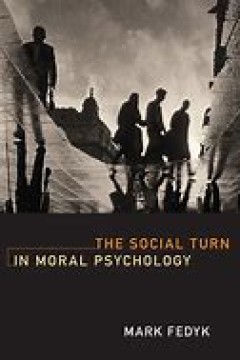
The Social Turn in Moral Psychology
"In this book, Mark Fedyk offers a novel analysis of the relationship between moral psychology and allied fields in the social sciences. Fedyk shows how the social sciences can be integrated with moral philosophy, argues for the benefits of such an integration, and offers a new ethical theory that can be used to bridge research between the two. Fedyk argues that moral psychology should take a s…
- Edition
- -
- ISBN/ISSN
- 9780262337151
- Collation
- 1 online resource (x, 246 pages) :illustrations
- Series Title
- -
- Call Number
- -

The Philosophy of Human Rights: Contemporary Controversies
The notion of "human rights" is widely used in political and moral debates. The core idea, that all human beings have some inalienable basic rights, is appealing and has an important practical function: It allows moral criticism of various wrongs and calls for action in order to prevent them. The articles in this collection take up a tension between the wide political use of human rights claims…
- Edition
- 1
- ISBN/ISSN
- 9783110263398
- Collation
- -
- Series Title
- -
- Call Number
- -
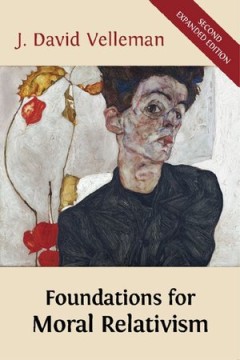
Foundations for Moral Relativism
In this new edition of Foundations for Moral Relativism a distinguished moral philosopher tames a bugbear of current debate about cultural difference. J. David Velleman shows that different communities can indeed be subject to incompatible moralities, because their local mores are rationally binding. At the same time, he explains why the mores of different communities, even when incompatible, a…
- Edition
- edisi 2
- ISBN/ISSN
- 9781783740345
- Collation
- -
- Series Title
- -
- Call Number
- -

Metaethics from A First Person Standpoint: An Introduction To Moral Philosophy
Metaethics from a First Person Standpoint addresses in a novel format the major topics and themes of contemporary metaethics, the study of the analysis of moral thought and judgement. Metathetics is less concerned with what practices are right or wrong than with what we mean by ‘right’ and ‘wrong.’
- Edition
- 1
- ISBN/ISSN
- 9781783742004
- Collation
- -
- Series Title
- -
- Call Number
- -

Minimal Ethics for the Anthropocene
Life typically becomes an object of reflection when it is seen to be under threat. In particular, humans have a tendency to engage in thinking about life (instead of just continuing to live it) when being confronted with the prospect of death: be it the death of individuals due to illness, accident or old age; the death of whole ethnic or national groups in wars and other forms of armed conflic…
- Edition
- 1
- ISBN/ISSN
- 9781607853299
- Collation
- -
- Series Title
- -
- Call Number
- -
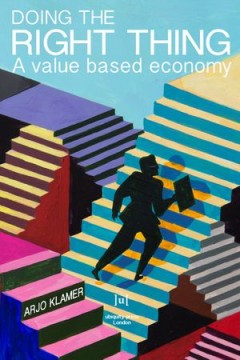
Doing the Right Thing: A Value Based Economy
This book is for all those who are seeking a human perspective on economic and organizational processes. It lays the foundations for a value based approach to the economy. The key questions are: “What is important to you or your organization?” “What is this action or that organization good for?” The book is directed at the prevalence of instrumentalist thinking in the current economy an…
- Edition
- 3
- ISBN/ISSN
- 9781909188938
- Collation
- -
- Series Title
- -
- Call Number
- -
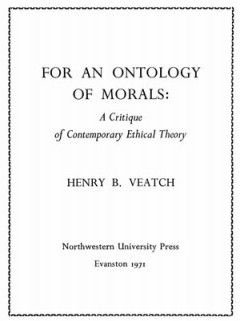
For an Ontology Of Morals
For an Ontology of Morals: A Critique of Contemporary Ethical Theory assesses contemporary trends in ethical theory, including the deontological tradition dating back to Kant, the teleological tradition of the utilitarians, the analytic movement, and the existentialist-phenomenologist movement. In refuting these trends, Henry B. Veatch argues that moral and ethical distinctions cannot be rightl…
- Edition
- 1
- ISBN/ISSN
- 9780810138759
- Collation
- -
- Series Title
- -
- Call Number
- -
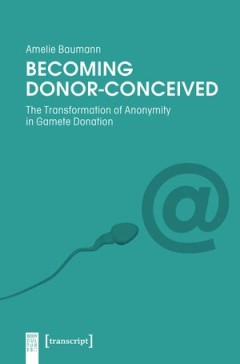
Becoming Donor-Conceived the Transformation of Anonymity in Gamete Donation
While it has been argued that anonymity in gamete donation has been brought to an end by legal changes and technological developments, Amelie Baumann suggests that this is in fact still in transformation. By focusing on the narratives of those who were conceived with anonymously donated gametes in the UK and Germany, she examines this transformative process and the role which donor-conceived pe…
- Edition
- 1
- ISBN/ISSN
- 9783839457313
- Collation
- -
- Series Title
- -
- Call Number
- -

The Spiritual Dimension of Business Ethics and Sustainability Management
This book discloses the spiritual dimension in business ethics and sustainability management. Spirituality is understood as a multiform search for meaning which connects people with all living beings and God or Ultimate Reality. In this sense, spirituality is a vital source in social and economic life. The volume examines the spiritual orientations to nature and business in different cultural t…
- Edition
- 1
- ISBN/ISSN
- 978-3-319-11677-8
- Collation
- -
- Series Title
- -
- Call Number
- -
 Computer Science, Information & General Works
Computer Science, Information & General Works  Philosophy & Psychology
Philosophy & Psychology  Religion
Religion  Social Sciences
Social Sciences  Language
Language  Pure Science
Pure Science  Applied Sciences
Applied Sciences  Art & Recreation
Art & Recreation  Literature
Literature  History & Geography
History & Geography